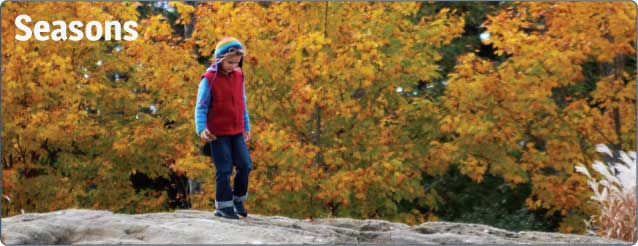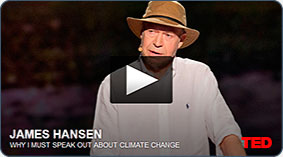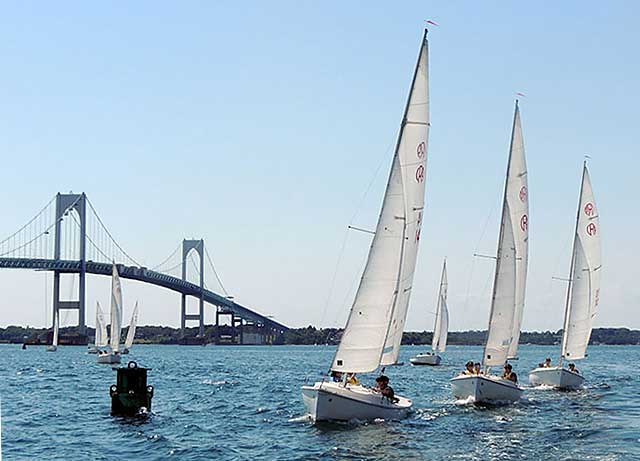
Photo Credit: O. Van Dyke
The Four Seasons: Just a Fancy Hotel?
We New Englanders are strongly tied to the four seasons. We anticipate them eagerly and have strong views as to what they should be and how they should behave.
Spring is rebirth when rain passes to warming days, seed catalogs arrive and we witness the ever-astonishing return of lush greens and flowers. Summer is a time of sitting on the stoop, outdoor barbeques and excursions to the beach. Fall is the donning of shoes and sweaters as the leaves drift downward and we prepare for the end of a life cycle. Winter is hibernation and the time for days of silent snowfall and no school in Foster-Glocester.


Top climate scientist James Hansen tells the story of his involvement in the science and debate over global climate change. Source: TED Talks
We all expect that weather and ensuing long-term climate changes will vary from winter to spring to summer to fall, quite visibly in the Northeast where “leaf-peepers” come to enjoy the changing colors of trees’ wardrobes in September and October — a major boon to the economy. All data show that the seasonal change and beauty a native New Englander has become used to are not going to be the same as what their children and grandchildren experience in the future.
Climate change is projected to change the intensity and timing of annual precipitation in the form of rain and snow, and the timing and length of seasons. What can we expect? Think three-week longer summer conditions, more droughts, and over a 10 percent increase in severe storms.
The Facts
- Globally, rainfall has decreased in the Northern Hemisphere subtropics and increased in mid-latitudes over the last 50 years.
- In the U.S. Northeast, studies have found a 5–10 percent increase in regional precipitation (rain and snow) during roughly the last 100 years.
Rainfall and wind patterns have also been changing over time in the U.S. Northeast and coastal New England.
- Since 1900, precipitation has increased 5–10 percent in the Northeastern U.S., with most of the increase historically occurring during fall, spring, and summer. In the last few decades, increases have also occurred in winter; however, more of this precipitation is falling as rain than snow.
- In Rhode Island, over the past 100 years, precipitation has increased by 0.12 inches per year.
- In contrast to precipitation, average winter and summer wind speeds over land across New England have declined by 20 percent in the last 50 years. Wind speed at Rhode Island’s T.F. Green Airport has significantly declined since the 1960s.
- The increase in precipitation, as well as warmer winter temperatures, is related to the observed increase in cloudiness, which results in a decreasing amount of sunlight reaching Rhode Island. (Invest in Vitamin D3 for the long-term.)
What Does This Do?
Increased precipitation increases river flow and transports pollutants and nutrients (don’t confuse with nutritious, as in your dinner menu) to lakes, reservoirs and coastal waters, which adversely affects ecology (e.g., harmful algal blooms), aquatic habitat, wildlife, and recreation and tourism-associated uses unless it is treated. Locally for Rhode Islanders, some of the river flow to the marine environment enters Block Island Sound and Rhode Island Sound, altering salinity (critical to marine productivity) and transporting contaminants and nutrients. Decreasing wind speeds are also of concern because they can impact the mixing and stratification of local waters, which link to low dissolved oxygen levels and fish kills.

Sailboats racing on Narragansett Bay.Photo Credit: US Naval Education and Training Command
“The coldest winter I ever spent was a summer in San Francisco.”
- Mark Twain
News
Factoids
New England’s famously brilliant fall colors may be affected as trees like the sugar maple migrate northwards or die out. The loss of fall colors would also have an economic impact in northern states that benefit from the revenue generated by “leaf peeper” tourists.
The northeast ski industry is severely threatened by changing winter weather, especially by the likely decreases in snowfall and rising winter temperatures.
By the year 2100 New England’s seasons could be radically different, with spring arriving three weeks earlier, summer weather extending six weeks longer, warmer drier falls, and shorter winters with little snow.




